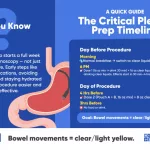An expert in obesity medicine outlines the true causes that make weight reduction so difficult and offers what you can do to work alongside your body rather than oppose it.
Weight loss is frequently portrayed as a straightforward formula of “eat less, move more,” yet for many people the process feels far from simple. If you’ve experienced sluggish progress, plateaus, or regaining weight, you’re not alone — and it isn’t your fault.
Dr. Jennah Siwak, a board-certified Family and Obesity Medicine physician (known on social media as @drjennahsiwak), explains that the obstacles to losing weight are rooted in biology, genetics, environmental factors, and even the structure of our brains.
In this piece, Dr. Siwak provides evidence-based explanations and compassionate guidance to help people grasp why weight loss is hard and how to approach it with more self-kindness and realistic strategies.
Your brain is built to resist weight loss
“Much of what drives our eating happens below conscious awareness,” Dr. Siwak says. “Hardly anyone wakes up planning to overeat and damage their health.” Yet our brains — especially the hypothalamus — evolved to regulate and protect body weight, particularly by defending against weight loss.
Although this system can adjust over time, it more vigorously opposes weight loss than weight gain, reflecting an evolutionary bent toward avoiding starvation.
This “lipo-stat” mechanism reacts to fat loss by increasing hunger and cravings, frequently without conscious notice. Leptin, a hormone released by fat tissue, falls with weight loss and signals to the brain that energy stores are low. In response, the brain heightens appetite and reduces metabolic rate.
“These systems evolved for survival where food scarcity was common,” Dr. Siwak notes. “Now they operate amid ultra-processed, calorie-rich foods. Our ancient neural wiring is overwhelmed.”

Genetics matter more than you might expect
“Some people appear to eat freely without gaining weight, while others must be extremely careful,” Dr. Siwak observes. That isn’t just hearsay — genetic studies support this reality.
Research indicates that body weight has a substantial genetic component. Still, Dr. Siwak stresses that genes interact with environment and lifestyle. “Genes load the gun; environment pulls the trigger.”
Put differently, body weight isn’t purely a matter of willpower — biology plays a significant part.
Metabolism adapts and slows with weight loss
One especially vexing feature of losing weight is that it becomes tougher the longer you pursue it. That’s because metabolic rate adapts and declines during weight loss.
“When you lose weight, your body interprets it as a threat,” explains Dr. Siwak. “Appetite rises, metabolism dips, and you burn fewer calories even at rest.”
This metabolic adaptation is a protective response. For people with obesity, the body may defend a higher set point, making sustained weight reduction particularly difficult.
Dr. Siwak uses a thermostat analogy: “Imagine your body is set to 80°F. You can open a window to cool it, but the heating system kicks on to return it to 80. That’s how your brain defends fat stores.”
Stress, sleep, and emotions shape eating patterns
Stress and inadequate sleep don’t just affect mood; they also alter hunger hormones, decision-making, and self-control.
“We become more impulsive when sleep-deprived or stressed,” Dr. Siwak explains, meaning the brain’s rational control center struggles to override cravings and urges.
Chronic stress can promote emotional eating, and poor sleep disrupts appetite-regulating hormones such as ghrelin and leptin.
That’s why Dr. Siwak underscores the importance of prioritizing sleep and stress reduction as vital tools to support weight-related goals.
Environmental and medical factors to consider
Your surroundings — where you live, work, and what foods are accessible — can greatly influence your capacity to lose weight. Dr. Siwak points out that people with long or irregular shifts, including night work, often face disrupted circadian rhythms that affect appetite and metabolism.
In areas known as food deserts, healthy choices may be scarce, leaving people to rely on processed, high-calorie options. “If you don’t have a healthy lunch ready, you’ll likely choose what’s quick and convenient,” she says.
Certain medications can also lead to weight gain. These include:
- Antidepressants (e.g., paroxetine, amitriptyline)
- Mood stabilizers (e.g., lithium, quetiapine)
- Diabetes treatments (e.g., insulin)
- Steroids, antihistamines, and some forms of birth control
“Sometimes these drugs are necessary and their benefits surpass the risks, but consult your physician before stopping any medication,” Dr. Siwak advises.
Assessing weight loss plateaus
First, Dr. Siwak recommends verifying whether what you’re experiencing is truly a plateau. “Weight loss isn’t linear,” she reminds. “Consider menstrual cycle, hydration, and digestion. Fluctuations are normal.”
If you’re no longer in a calorie deficit (which is harder to sustain as metabolism slows), weight loss will stall. This doesn’t imply you’re failing; it’s the body’s attempt to maintain equilibrium.
She recommends re-evaluating:
- food consumption
- stress levels
- sleep quality
- physical activity
- medications
Metabolic adaptations and hormonal shifts can also reduce unconscious movement — a drop in non-exercise activity thermogenesis (NEAT) — which further slows progress.
Keeping weight off
Dr. Siwak says that maintaining weight loss needs a sustainable, long-term plan and steady habits:
- Emphasize protein, fiber, and healthy fats to enhance satiety.
- Avoid very rapid or extreme diets, as they’re hard to maintain.
- Stay active with both cardiovascular exercise and resistance training.
- Regularly review habits and progress (e.g., weight checks, food tracking, consistent movement).
- Include recovery days and vary workout intensity.
- Pay attention to sleep, stress control, and social support.
The aim isn’t perfection; it’s consistent effort.
Setting achievable goals and timelines
The advised pace of weight loss is modest and sustainable for about six months. Losing weight too quickly isn’t necessarily better and can cause muscle loss, metabolic slowing, and regain.
Creating a calorie deficit
“A calorie deficit is required to lose weight,” Dr. Siwak states. “But how you reach that deficit — whether via intermittent fasting, lower-carb approaches, or portion management — should fit what works for you.”
The most effective eating plan is one that aligns with your life, preferences, and routine and that you can maintain long term.
Getting to know your body
“Losing weight is extremely challenging,” Dr. Siwak emphasizes. “Your body is wired to protect its fat reserves. Struggling isn’t a weakness — it’s your biology functioning as it was designed.”
Her core message for anyone feeling disheartened: “You are more capable than you realize. Learning how your body works helps you cooperate with it rather than battle it.”
That means acknowledging how appetite hormones, metabolic changes, stress, sleep, and medications affect weight — not as excuses, but as important elements to consider and address thoughtfully.
Takeaway
If you’re having trouble with weight loss, you aren’t alone and there’s nothing fundamentally wrong with you. Biology, surroundings, and life circumstances all contribute, and recognizing these factors can help you proceed with more compassion and resilience.

























Leave a Reply
You must be logged in to post a comment.